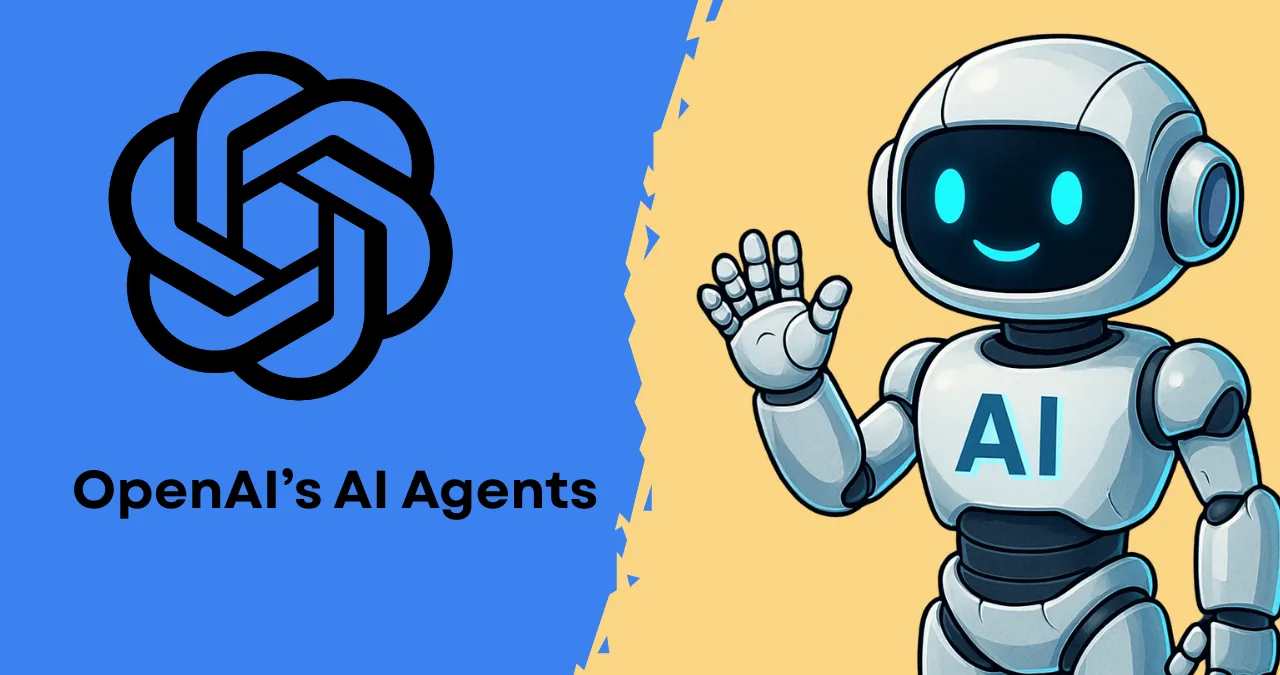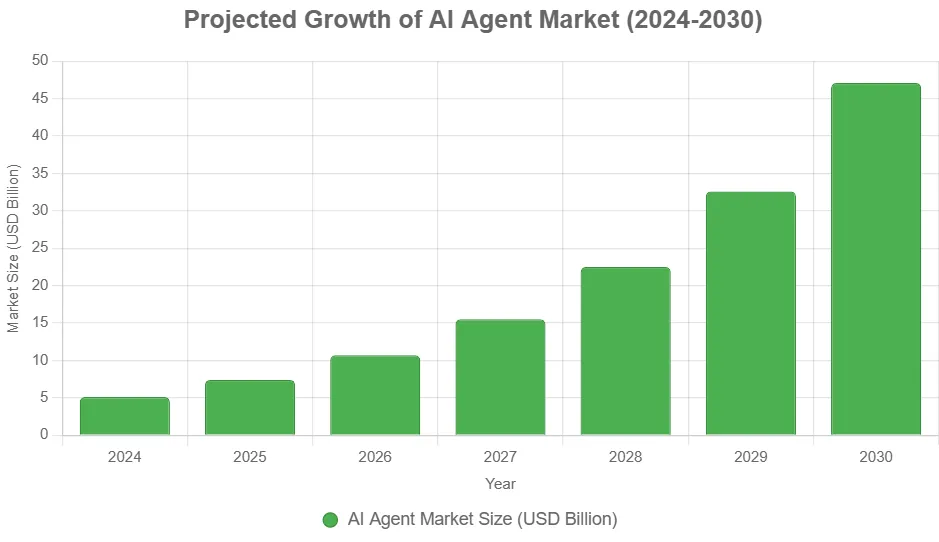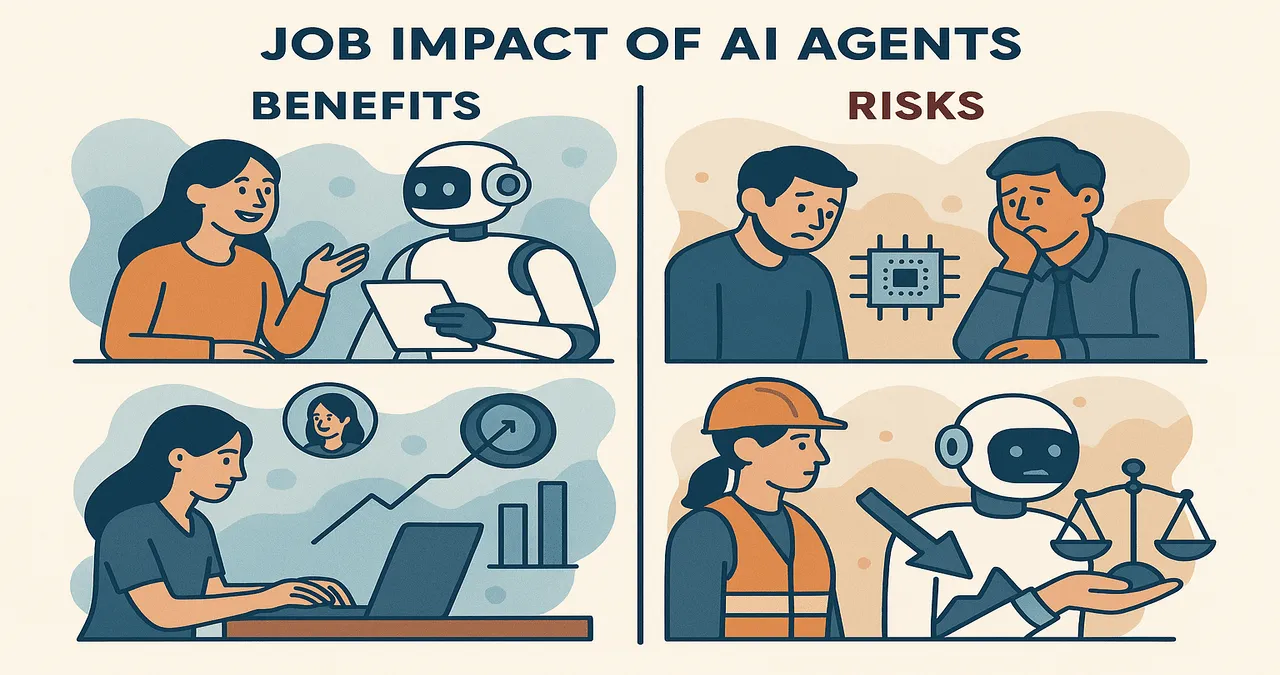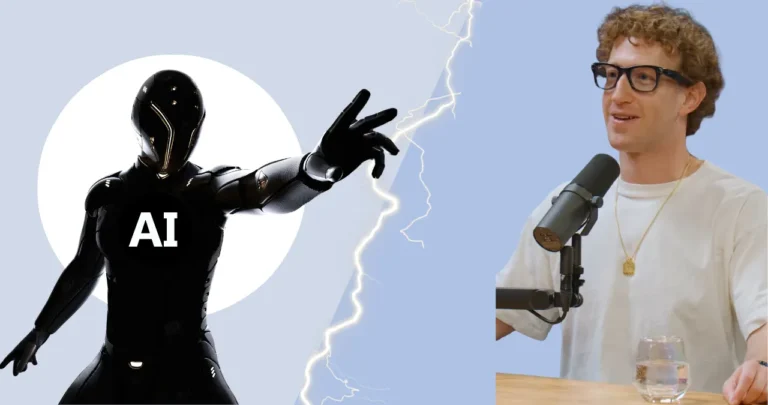In 2025, artificial intelligence (AI) is no longer just a tool for providing answers of questions or generating text—it’s evolving into autonomous systems capable of performing complicated tasks with minimal human oversight. OpenAI is at the forefront of this movement with its AI agents, which promise to change industries and the way people work. These agents are going to change the jobs of assistants, coders, and even CEOs by automating administrative tasks, writing code, and maybe even helping executives make decisions.
This article goes into detail about OpenAI’s AI agents, looking at how they were made, how they are used in the real world, how they affect jobs, the competition, and expert opinions, all based on reliable data and sources.
OpenAI’s Autonomous AI Agents: Key Points, Milestones, and Timeline
OpenAI has made great progress in creating advanced AI agents, positioning 2025 as a landmark year. In March 2025, the company launched the Responses API, a new tool combining the simplicity of Chat Completions with the tool-use capabilities of the Assistants API. This API supports built-in tools like web search (scoring 90% on SimpleQA), file search (handling multiple file types), and computer use (achieving 87% on WebVoyager).

OpenAI also made the Agents SDK available. This lets users create multi-agent workflows with features like observability, configurable LLMs, handoffs, and guardrails.
Important milestones are:
- March 11, 2025: Launch of the Responses API and built-in tools on March 11, 2025, making it easier to make agent-based apps.
- June 3, 2025: Codex, OpenAI’s software engineering agent, became available to ChatGPT Plus users with internet access capabilities.
- July 17, 2025: Introduction of the ChatGPT Agent, a unified system combining the Operator’s action-taking browser and deep research capabilities.
- Mid-2026: Planned deprecation of the Assistants API, with a migration guide for developers.
OpenAI wants to make a platform that helps people in all fields get more done. But there are still problems to solve, like getting 99% reliability, since current models are only about 80% reliable.
Potential Real-World Applications
AI agents are transforming industries by automating tasks and enhancing efficiency. The global market for AI agents is predicted to jump from $5.1 billion in 2024 to $47.1 billion by 2030. This is a very high growth rate of 44.8% per year. Here are key applications:

| Application | Details | Examples/Statistics |
|---|---|---|
| Enterprise IT & Service Desk | Automates support workflows, diagnoses issues, and resolves problems. | IBM’s AskIT reduced IT support calls by 70%. |
| Customer Support & Sales | Handles inquiries, integrates with CRMs, and boosts user experience. | E-commerce chatbots cut support costs by ~65%. |
| Business Document Analysis | Extracts and summarizes data from contracts and financial documents. | Reduces processing time by up to 75% in banking and legal sectors. |
| E-commerce & Inventory | Predicts demand, manages inventory, and personalizes shopping. | Walmart-style AI assistants enhance shopping experiences. |
| Logistics & Operations | Optimizes delivery routes and supply chains. | UPS saved $300 million annually with AI-driven route optimization. |
| HR & Finance | Automates payroll, invoice processing, and compliance checks. | IBM’s HR agents automate 94% of routine queries. |
| Research & Analytics | Summarizes reports and generates insights from large datasets. | Google Cloud’s AI agents provide conversational insights. |
These applications highlight the versatility of AI agents, from streamlining operations to enabling data-driven decisions.
Impact on Professions: Risks and Benefits
The rise of AI agents brings up important questions about how they will affect jobs, especially for assistants, coders, and CEOs. The Future of Jobs Report 2025 from the World Economic Forum says that AI could affect almost 50 million US jobs by 2030. 40% of employers expect to cut jobs in roles that can be automated.
However, AI is also projected to create 11 million new jobs in fields like AI development and cybersecurity.
Assistants
Administrative assistants face significant automation risks, as AI agents can handle scheduling, email management, and customer inquiries. For example, a UK financial-services firm used AI chatbots to manage basic queries, increasing the complexity of tasks for human agents. This shift allows assistants to focus on strategic tasks but may reduce entry-level positions.
Coders
AI agents like OpenAI’s Codex and the upcoming A-SWE (Agentic Software Engineer) can write, test, and deploy code. AI writes more than 25% of the code at Microsoft and Google. This increases productivity, but it also puts entry-level coding jobs at risk. To keep these jobs, you need to know how to manage AI and do advanced programming.
CEOs and Executives
While replacing CEOs is less immediate, AI agents can augment executive decision-making by analyzing vast datasets and providing insights. AI could help CEOs with strategic planning or risk assessment, for example, but human judgment is still very important for leadership positions.

Benefits
- Augmentation: AI agents undertake routine chores, allowing employees to concentrate on more creative and strategic initiatives.
- New Opportunities: There is a growing need for AI professionals, especially those with skills in data analytics and machine learning.
- Gig Economy: AI-powered platforms like Upwork make it easier to find the right freelancer, which boosts productivity by 50%.
Risks
- Job Displacement: Entry-level roles in customer service and coding are at high risk.
- Skill Gaps: Workers need to learn new skills to stay competitive, and 39% of job skills are expected to change by 2030.
- Concerns about ethics: Autonomous decision-making creates problems with accountability, so humans need to be in charge.
Competitive Landscape
OpenAI faces robust competition in the AI agent space:
| Competitor | Key Offerings | Strengths |
|---|---|---|
| Anthropic | Claude model for conversations and tasks. | Focus on AI safety and context awareness. |
| Google DeepMind | Advanced AI agents for complex tasks. | Expertise in deep learning and reinforcement learning. |
| Microsoft AI | Integrates AI agents into enterprise solutions. | Leverages OpenAI partnership and proprietary tools. |
| xAI | Grok model for question-answering. | Focus on accelerating human discovery. |
| IBM Watson | Watsonx AI for generative AI and LLMs. | Enterprise-focused solutions. |
| Hugging Face | Over 1 million open-source AI models. | Community-driven development. |
These competitors offer a wide range of solutions, from open-source platforms to enterprise-grade tools, which makes it hard for OpenAI to stay on top of the market.
Expert Insights
Industry leaders are optimistic about AI agents in 2025:
- Sam Altman, OpenAI CEO: “In 2025, we may see the first AI agents join the workforce and materially change the output of companies”.
- Kevin Weil, OpenAI Chief Product Officer: “I think 2025 is going to be the year that agentic systems finally hit the mainstream”.
- Sarah Friar, OpenAI CFO: “We think that’s just the beginning of what 2025 will be about: agents who are there to help you with day-to-day tasks”.
- Konstantine Buhler, Sequoia Capital: “2025 will see the emergence of networks or ‘swarms’ of AI agents working together within businesses”.
These insights show that 2025 will be a big year for AI agents, but experts warn that there will be problems with reliability and ethics.
Social Media Buzz
X posts reflect excitement about OpenAI agents:
These posts capture real-time enthusiasm and anticipation for OpenAI’s advancements.
OpenAI agents will change the way people work in 2025. They will be used in many areas, including customer service, software development, and business analytics. They promise to make work more productive, but they also threaten to take jobs away, especially for entry-level positions. The competition is getting tougher, with companies like Anthropic and Google DeepMind fighting for the top spot.
Experts like Sam Altman and Kevin Weil say that a breakthrough in the mainstream is coming. The balance between automation and human enhancement will determine the future of work.
AI agents could become essential digital coworkers by addressing issues of reliability and ethics. This would change industries and open up new opportunities for those who adapt.
Also Read This: Sam Altman Issues Stark Warning Ahead of ChatGPT-5 Launch
Also Read This: Perplexity Launches Comet AI Browser That Could Replace Recruiters & Assistants


